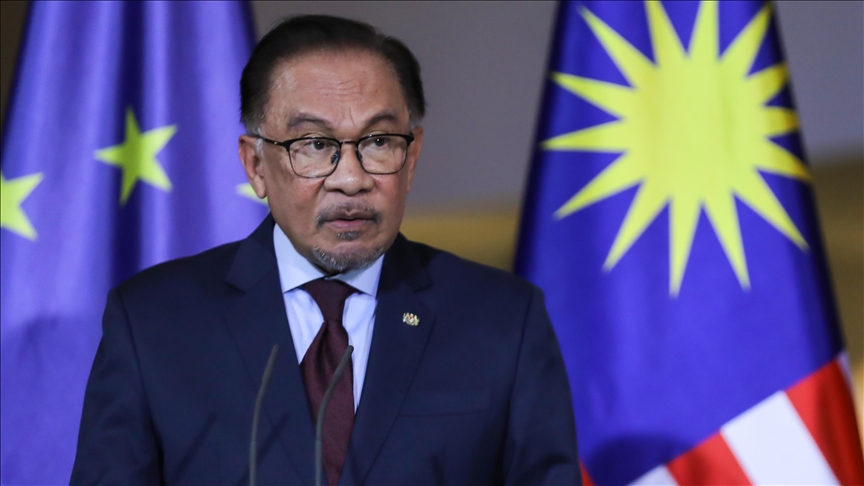Malaysian premier opposes 'external interference' in South China Sea disputes
Anwar Ibrahim says he sees ‘early signs of change’ in US stance towards conflict in Gaza

ISTANBUL
Making a pitch for “aggressive” diplomatic efforts to solve conflicts, Malaysian Prime Minister Anwar Ibrahim Thursday opposed "external interference" in the South China Sea disputes.
Responding to persistent tensions between China and the Philippines over maritime claims, Anwar said the issue must be resolved through talks between China and members of the Association of Southeast Asian Nations (ASEAN), Free Malaysia Today news reported.
“There should be no involvement of other parties because it would (then) be deemed to be more complex and will complicate the matter,” Anwar told the Asia-Pacific Roundtable in Kuala Lumpur.
Malaysia will take over as chair of the ASEAN, a regional bloc of 10 Southeast Asian nations.
Anwar recalled his conversations with Filipino President Ferdinand Marcos Jr. on the South China Sea, and said: “At this stage, I will say that I do understand the concerns expressed by Bongbong Marcos.”
When Marcos asked for my view, Anwar added, “I said my personal view is that we (Malaysia) take a more aggressive way of engaging diplomatically and we have been rather successful in that regard.”
Manila and Beijing have witnessed bilateral relations spiral down due to longstanding overlapping maritime claims in the South China Sea.
China has fired water cannons to stop Filipino vessels from reaching the disputed islets. And Manila has drawn support from the US and her allies against Beijing.
“There have been some very serious issues, too, with Malaysia, but we have been relatively more successful in that regard. We are deemed to be really neutral in the engagement,” Anwar said.
The Malaysian prime minister stressed that the Southeast Asian nation will “align itself with peace and progress” amid global conflicts.
“We are fiercely independent. That is to say, we refuse to be defined by how major powers see the world,” Anwar stressed.
Regarding the ongoing Israeli war on Gaza, Anwar said he saw “early signs of change” in the US stance towards the conflict.
“It's important to acknowledge positive developments. Within the constraints of the US political system in an election year, President Biden has recently expressed growing impatience with his Israeli counterpart,” Anwar said.
“He has also begun to push for an acceptance of a proposal for a cease-fire in exchange for the release of hostages," he added, saying that Malaysia welcomes these developments.








